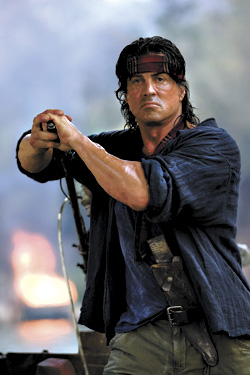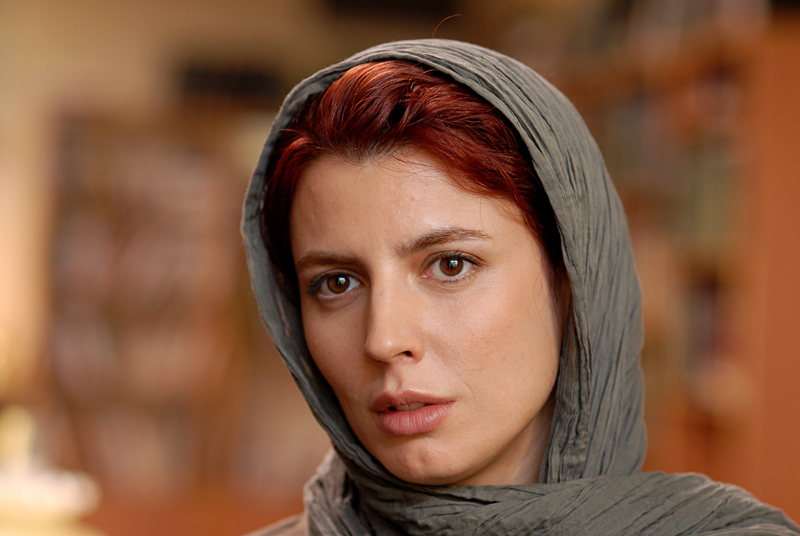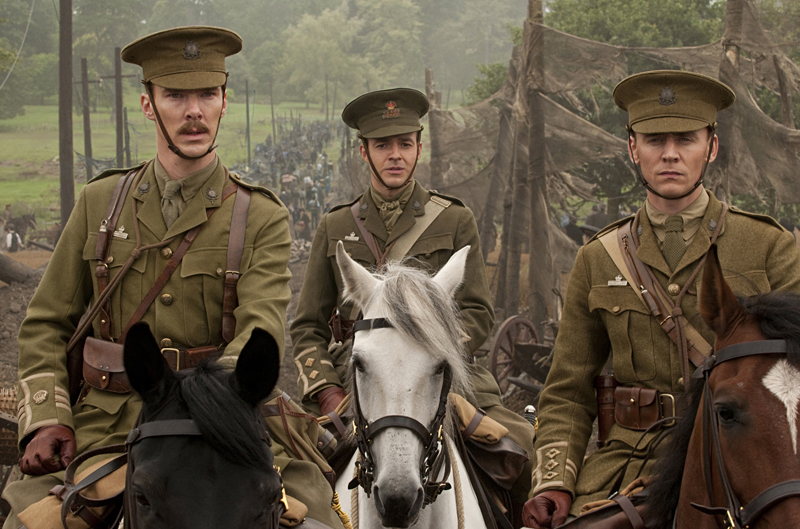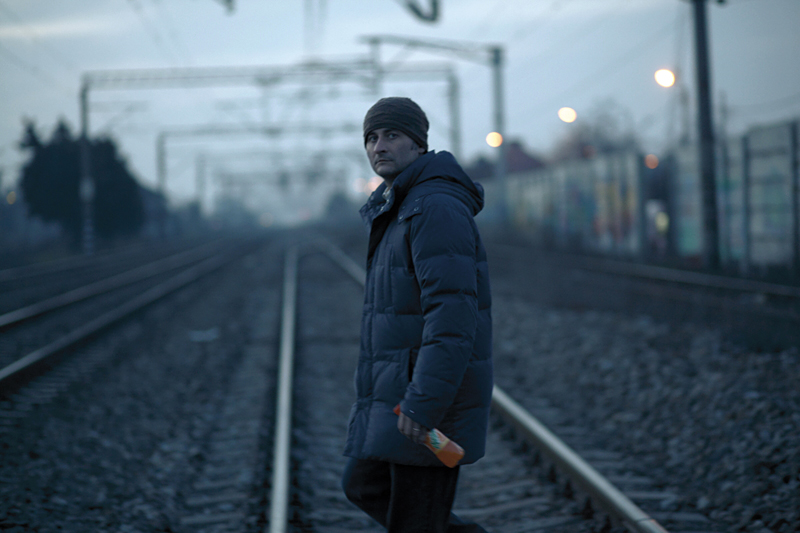He’s back–unflagging, indestructible, super-colossal. Through this epoch-defining figure one may refract American history. John Updike has his Rabbit Angstrom and Philip Roth his Nathan Zuckerman, but who are they compared to John Rambo, woken from a 20-year sleep in Rambo: “A Film,” as the credits have it, “By Sylvester Stallone.”
A veteran now in his 60s (as well as of them), Rambo has chosen to spend his retirement in deepest Thailand, dreamily fishing with a bow and arrow or capturing cobras for a backwater snake show. He’s still wearing his trademark bandanna (over a wig hat, unless the still-luxuriant coiffure is a function of the HGH that the star has admitted using). More to the point, he remains unreconciled, still nursing that thousand-yard stare and schlepping a cargo of resentment. Rambo’s first line of dialogue is the traditional “Fuck off!,” delivered over his shoulder at his jabbering boss.
What crisis has disturbed the creature’s slumber and brought him back to life? Iraq, Iran, North Korea, Hugo Chávez? Somewhere in the Ramboverse, there’s been a chemical-weapon attack—it’s the crisis in Burma! Accompanied by newsreels too grisly for the Human Rights Film Festival, Rambo explains that Christian farmers have been singled out for extermination, their rice paddies turned into killing fields. Rambo is approached by a church-sponsored group of idealistic American doctors looking for a way to enter Burma and save a bit of the world. Will he ferry them upriver? “Fuck the world,” he tells the group’s wimpy leader (Paul Schulze).
The expedition’s lone woman (Julie Benz) tries to reason with the Rambot: “We’re here to make a difference,” she insists. “What is is what is,” he explains Buddhistically. But when she remarks that he must have believed in something once, Rambo relents. Naturally, his worst fears about human nature are immediately confirmed once their boat is attacked by slavering river pirates who want nothing more than to kidnap and ravish the White Woman. Rambo liquefies the scum. The Christians are appalled (“Taking a life is never right,” the Schulze character whines).
A sort of parody Apocalypse Now, complete with listless coochie dancers entertaining the Burmese troops, the movie finds its own heart of darkness once Rambo drops the doctors in Burma. No sooner have they begun nursing the maimed and ministering to the mutilated when ka-BLAAAAM!!!!!! The local storm troopers attack, stabbing children, blowing up houses, massacring old people, and making off with the WW—the village left looking like Jonestown after the Kool-Aid.
Rambo has the feel of a terminal Vietnam flick. The absence of choppers hovering like angels overhead only reinforces the sense of abandonment in this green hell. Smeary black-and-white clips from Rambo: First Blood Part II establish historical perspective, such as it is, and function as the turgid nightmare from which the hero is trying to awake—and which is, in fact, interrupted by another pastor pleading with him to help rescue the captives. Strapping on his mega–bowie knife and leading a band of screwball mercenaries into the jungle (“Live for nothing or die for something”), Rambo penetrates the storm trooper stronghold just as the rape orgy commences and initiates his own bloodbath. It’s a reasonably entertaining spectacle replete with half-animated action sequences in which CGI bodies disintegrate like breakaway bottles.
After 20 years in remission, Rambo remains tough enough to rip out a guy’s throat with one hand, smart enough to assemble something like a tactical nuclear device while galumphing through the underbrush with Burmese police dogs nipping at his keister, and noble enough to pose for Mount Rushmore. He finishes the job and, his curiosity whetted by the White Woman, goes home to “the world.” But this is where, 26 years ago, First Blood began—can the Rambodyssey really be over?
At once cowboy and Indian, GI and VC, Rambo was arguably the great pop icon of the Vietnam War. Or rather, this puppy-eyed, Nautilus-built killing machine was the great pop icon of the decade-after Vietnam War revisionism that characterized the reign of Ronald Reagan. It’s as though the ongoing political discourse, with some politicians claiming to be the new Reagan and others denying it, had conjured his reappearance: Rambo redux.
Back in 1982, First Blood gave the cliché of the psychotic Vietnam vet a novel twist. Driven to run amok in the Pacific Northwest, Stallone’s sweet but implacable Green Beret was misunderstood and unappreciated. He was a victim not only of the war overseas but of the one at home—another longhair vagrant persecuted by the pigs. First Blood was constructed to appeal to hawks and doves alike and, however schematic, struck a responsive chord. It was an unexpected hit, the movie that dethroned E.T. as the nation’s No. 1 box-office attraction and gave Stallone his first real success outside the Rocky cycle, returning him to the charmed circle of bankable stars.
Three years later, Rambo: First Blood Part II provided Stallone the muscle to elbow aside Clint Eastwood at the top of the list. Sprung from the prison where his earlier rampage landed him, the Green Beret extraordinaire is recruited to parachute back into ‘Nam on a 36-hour mission to find and photograph 2,500 MIAs (who are actually POWs). Bucking orders, he leads them to freedom. The scenario effectively reworked the previous year’s Uncommon Valor and Missing in Action, with a greater body count and more explicit meaning. “Sir, do we win this time?” Rambo plaintively asks his Green Beret guru. Affirmative to the max!
New morning in America: Rambo was the fetish rattle brandished by our national medicine man. During the movie’s third boffo week, Hezbollah terrorists hijacked a TWA flight en route from Athens to Rome and forced the plane to land in Beirut, holding it there for 17 days. Asked how he would deal with terrorists in the future, Reagan promised to consult his oracle: “After seeing the movie Rambo, I’ll know what to do the next time something like this happens.” The master of fantasy merged with the fantasy of mastery—Ronbo. Meanwhile, a pumped-up Bruce Springsteen was hailed as the Rambo of Rock. The Vietnamalaise was over. America stood at attention.
Released in the Reagan administration’s final year, Rambo III was necessarily anticlimactic. Vietnam behind him, Rambo was available for commando work in Afghanistan, teaming with the mujahedeen to rescue a captive from the Russian occupying army. (Having fought to make the world safe for bin Laden, sending Rambo back to wipe out the Taliban would seem the least Stallone could do for us.) In September 1990, Stallone was in his kinder, gentler bespectacled phase; the star declared he would never do a Rambo movie about Iraq’s occupation of Kuwait. That was minor, “just another speed-bump in history.” Instead, his never-realized Rambo IV would focus on “environmental concerns.”
How green was my beret. Reviewing Rambo: First Blood Part II, I noted that its protagonist was a symbolic reminder that the Vietnam War would never be behind us: “The bitterness and resentment of the men who fought and lost there is a political time bomb, to be activated anytime between now and 2001″—which then seemed to me like the end of time. I assumed that the Vietnam issue was buried with the 2004 election, in which a meretricious pair of draft-evading warmongers successfully slimed a genuine anti-war war hero. But I was wrong.
Stallone may have recently entertained a Time interviewer by quoting an obscure bit of 1968 acid rock as his source of inspiration, but it hardly seems coincidental that as part of Rambo‘s eve-of-release P.R. blitz, the star used a Fox News morning show to make a political endorsement: “There’s something about matching the character with the script,” he explained. “And right now, the script that’s being written—and reality—is pretty brutal and pretty hard-edged, like a rough action film, and you need somebody who’s been in that to deal with it”: Who else but Sen. John McCain? (To complete the love fest, as well as the script, McCain has taken to using the Rocky theme as entrance music.)
Hooray for Hollywood: Brian De Palma is hardly the only old New Lefty equating Iraq with Vietnam. But Redacted is “Vietnam: The Bummer.” Rambo is something else. Stallone knows that if the Republicans nominate action-hero McCain, Vietnam will return—with bells on. And, back on the national agenda, the war will have to be won again. (All the more if John-bo runs against Hillary: While he was rotting in a tiger cage, she was out waving a Vietcong flag.)
As the current obsession with Reagan suggests, it’s back to fantasyland! The Democrats can consider themselves lucky Arnold Schwarzenegger was born in the Austrian zone of the former Third Reich. Meanwhile, McCain rival Mike Huckabee has cast his suitably bargain-basement Reagan-era muscleman as the embodiment of homeland security: “My plan to secure the border? Two words: Chuck Norris.” But as McCain’s been suggesting, his guy could kick that has-been’s butt—and anyway, homeland security begins over there.
Stolidly slaughtering thousands to complete a dubious mission bungled by Christian do-gooders and incompetent bureaucrats, our Rambo once again frees the captives and redeems the nation. He’s not just a rerun but a great second chance, history rewritten. The answer to a Republican prayer, he’s economical, too: a one-man surge.








